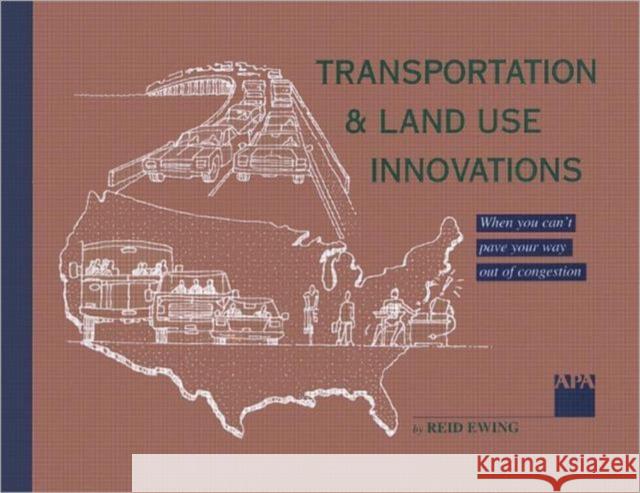Transportation & Land Use Innovations: When You Can't Pave Your Way Out of Congestion » książka
Transportation & Land Use Innovations: When You Can't Pave Your Way Out of Congestion
ISBN-13: 9781884829123 / Angielski / Miękka / 1997 / 106 str.
Transportation & Land Use Innovations: When You Can't Pave Your Way Out of Congestion
ISBN-13: 9781884829123 / Angielski / Miękka / 1997 / 106 str.
(netto: 256,50 VAT: 5%)
Najniższa cena z 30 dni: 266,04
ok. 16-18 dni roboczych.
Darmowa dostawa!
As our overstressed highways become increasingly snarled, America's love affair with the automobile continues to exact a frightening toll on our roadways, environment, and quality of life. This handbook, written especially for nontechnical readers, shows that you don't have to be a transportation engineer to effectively combat traffic congestion and automobile dependence. General planners and decision makers can set a new course by adopting broader transportation performance standards that incorporate mobility, livability, accessibility, and sustainability. Ewing demonstrates how manageable, affordable, and incremental changes in traffic patterns, road and intersection design, transit schedules, walkways and bikeways, and other factors can shrink vehicle miles and vehicle hours traveled. He uses examples from Florida and elsewhere to show how to implement complementary short- and long-term strategies tailored to your community's travel environments that will signifigantly reduce auto travel and its associated ills. Ewing emphasizes five tools: land planning, travel demand management, transportation system management, enhanced transit service, and pedestrian- and bicycle-friendly design. He demonstrates how proactive land planning, with an eye to mitigating the demand for auto travel, is the key element in a successful long-term approach. The book is extensively illustrated with easy-to-understand graphs, charts, drawings, and other visual aids. Generous endnotes will assist transportation professionals who may want to dig deeper.











